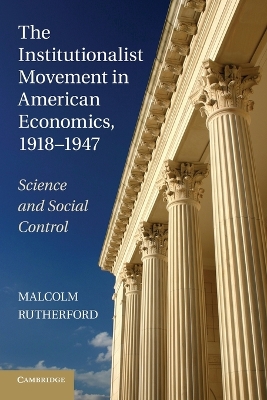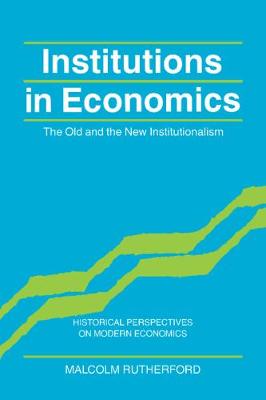Historical Perspectives on Modern Economics
2 total works
The Institutionalist Movement in American Economics, 1918–1947
by Malcolm Rutherford
Published 1 January 2011
This book provides a detailed picture of the institutionalist movement in American economics concentrating on the period between the two World Wars. The discussion brings a new emphasis on the leading role of Walton Hamilton in the formation of institutionalism, on the special importance of the ideals of 'science' and 'social control' embodied within the movement, on the large and close network of individuals involved, on the educational programs and research organizations created by institutionalists and on the significant place of the movement within the mainstream of interwar American economics. In these ways the book focuses on the group most closely involved in the active promotion of the movement, on how they themselves constructed it, on its original intellectual appeal and promise and on its institutional supports and sources of funding.
This book examines and compares the two major traditions of institutionalist thinking in economics: the 'old' institutionalism of Veblen, Mitchell, Commons, and Ayres, and the 'new' institutionalism developed more recently from neoclassical and Austrian sources and including the writings of Coase, Williamson, North, Schotter, and many others. The discussion is organized around a set of key methodological, theoretical, and normative problems that necessarily confront any attempt to incorporate institutions (defined to include organizations, laws, and social norms) into economics. These are identified in terms of the issues surrounding the use of formal or non-formal analytical methods, individualist or holistic approaches, the respective roles of rational choice and rule-following behavior, the relative importance of the spontaneous evolution and deliberative design of institutions, and questions concerning the normative appraisal of institutions. The old and the new institutionalism have often been paired on opposite sides of these issues, and the issues themselves presented in a series of sharp dichotomies. Professor Rutherford argues, however, that matters are both more complex and more challenging. Although each tradition embodies fascinating insights into the study of economic institutions - their functioning, evolution, and impact on human welfare - neither has as yet provided fully satisfactory answers to the problems identified.

